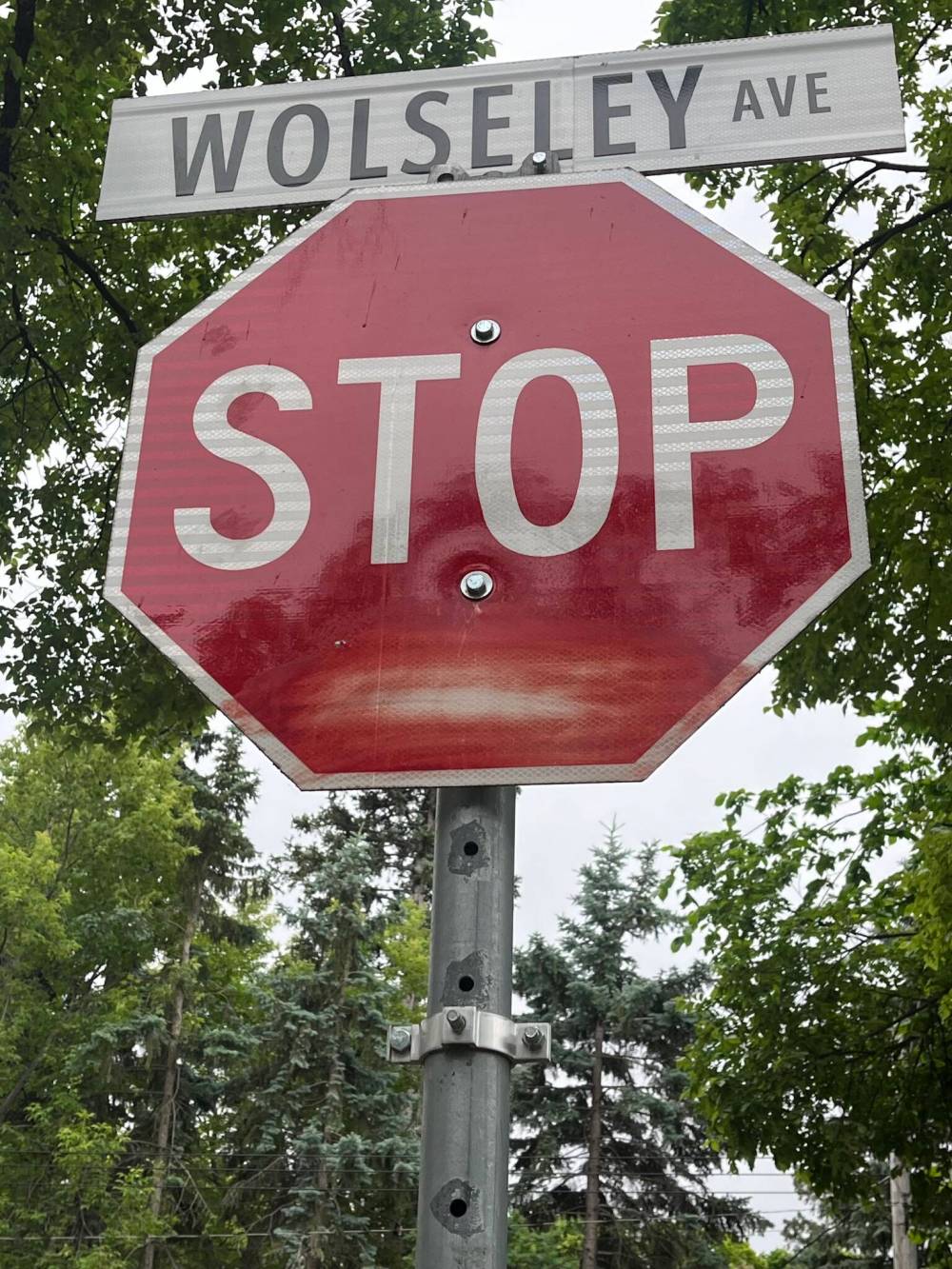Street names and recognizing public figures
Advertisement
Read this article for free:
or
Already have an account? Log in here »
To continue reading, please subscribe:
Monthly Digital Subscription
$1 per week for 24 weeks*
- Enjoy unlimited reading on winnipegfreepress.com
- Read the E-Edition, our digital replica newspaper
- Access News Break, our award-winning app
- Play interactive puzzles
*Billed as $4.00 plus GST every four weeks. After 24 weeks, price increases to the regular rate of $19.95 plus GST every four weeks. Offer available to new and qualified returning subscribers only. Cancel any time.
Monthly Digital Subscription
$4.99/week*
- Enjoy unlimited reading on winnipegfreepress.com
- Read the E-Edition, our digital replica newspaper
- Access News Break, our award-winning app
- Play interactive puzzles
*Billed as $19.95 plus GST every four weeks. Cancel any time.
To continue reading, please subscribe:
Add Free Press access to your Brandon Sun subscription for only an additional
$1 for the first 4 weeks*
*Your next subscription payment will increase by $1.00 and you will be charged $16.99 plus GST for four weeks. After four weeks, your payment will increase to $23.99 plus GST every four weeks.
Read unlimited articles for free today:
or
Already have an account? Log in here »
Hey there, time traveller!
This article was published 02/07/2025 (220 days ago), so information in it may no longer be current.
“A rose by any other name would smell as sweet,” William Shakespeare famously wrote in his play, Romeo and Juliet.
The problem is, sometimes the bloom falls off the rose, and other times, the smell becomes something that isn’t sweet at all.
A year ago, Bishop Grandin Boulevard was renamed Abinojii Mikanah, a name that translates to “children’s way” in Anishinaabemowin. Bishop Grandin Trail became Awasisak Meskanôw — “the children’s road” in Ininimowin, or Cree, and Grandin Street, which runs from Taché Avenue to St. Joseph Street in St. Boniface became Taapweewin, which means “truth” in Michif.

Russell Wangersky / Free Press
A street sign for Wolseley Avenue
The name changes all came because of the recognition of the extent of Bishop Vital Grandin’s troubling role in establishing residential schools.
With that change in mind, it may well be a reckoning is coming for Wolseley the school, Wolseley the avenue, and maybe even Wolseley the neighbourhood — to cite just one other troubling name from the past.
Wolseley School’s parent council has looked at the possibility of changing the school’s name, and the Winnipeg School Division has collected feedback on the idea, because the school is named after Col. Garnet Wolseley, who led a campaign of repression against Manitoba Métis. (Interestingly, the Manitoba Métis Federation has argued the name should stay, arguing that renaming landmarks and removing statues is a way of erasing a history of wrongdoing.)
But one thing has arisen out of the renaming process that should also be considered by the city going forward. The WSD set renaming criteria for the Wolseley school that said prospective names “should represent the neighbourhood and community; should connect to learning for the students” and “must avoid the names of people.”
The last one is an idea whose time may have come — avoiding the names of people.
Because, more than anything else, people are complicated.
Right now, the City of Winnipeg website devotes more than 300 words to explaining how it chooses to name a street after a person, saying that it wants “to honour and commemorate noteworthy people associated with the city of Winnipeg.”
That includes “a person who demonstrates excellence, courage or exceptional dedication to service in ways that bring special credit to the city of Winnipeg; a person who volunteers and gives extraordinary help or care to individuals, families or groups, or supports community services or humanitarian causes; a person who fosters equality and reduces discrimination” and even “an early pioneer or group or settlers who have contributed to the development of the city.”
The city is so keen on naming streets after worthy Winnipeggers that the $200 fee for adding a name to the suggested street name reserve list is waived “for applications recognizing individuals.”
But maybe streets shouldn’t be named after people at all, because history is a long road, and our viewpoints — and our knowledge about the character and behaviour of people who may seem like great examples today — can change with the years and with new knowledge. We’ve certainly seen that here. It’s been recognized in other places as well.
St. John’s, the capital of the province of Newfoundland and Labrador, has taken the approach of changing its street naming policy this month to exclude naming streets after individuals. Simply put, it can be fraught with difficulties.
“Naming streets after people carries a number of risks,” St. John’s Coun. Ron Ellsworth said during a June 17 council meeting, including ” problematic legacies, political polarization, disparity in representation and cultural marginalization.”
The council vote in St. John’s was unanimous, following the advice of the city’s legal staff and the advice of the city’s senior management.
Maybe it’s not an approach that will garner much support from Winnipeg’s council.
But maybe it’s an idea whose time has come.





